Primary Education in India: Overview, Why, Challenges and More
By Srivatsa sai Krishna |
Date 29-11-2024
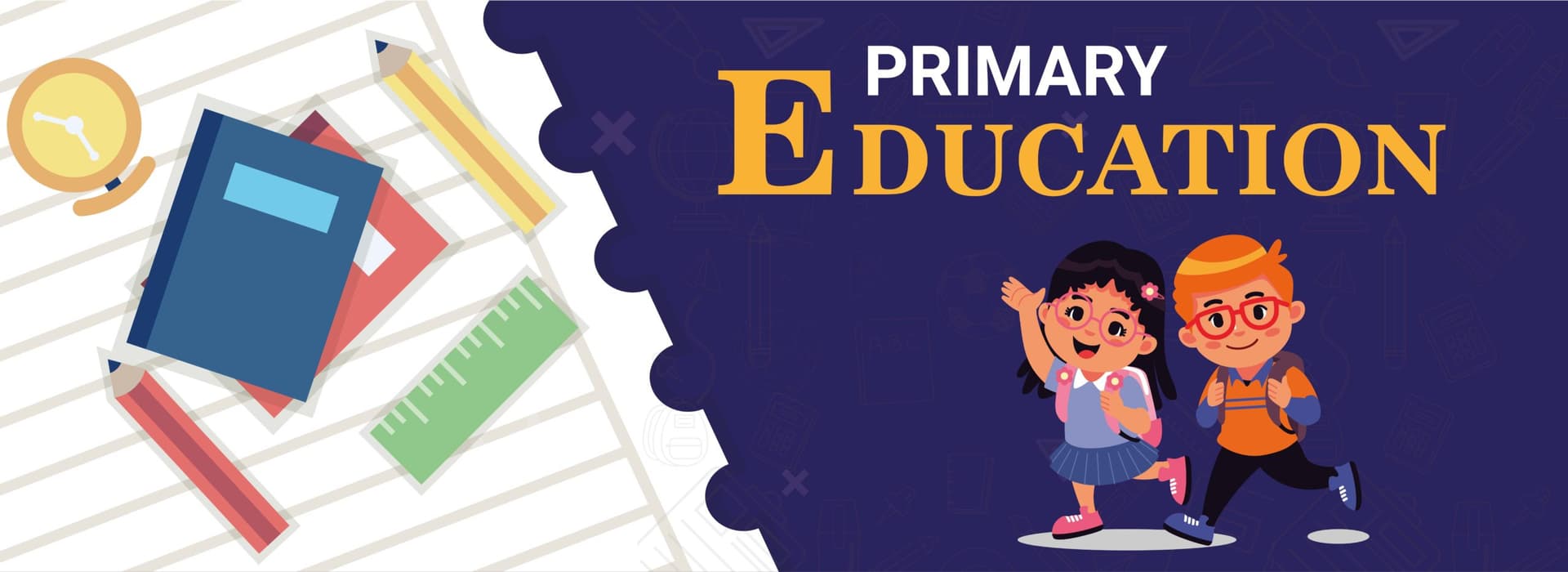
Table of Contents
- Life at Primary years
- What is Primary Education? Definition & Meaning
- Current Scenario
- Primary Schooling System in India- Why needed
- Empowering Minds with Technology
- Child Development through Primary Education
- Challenges in Elementary Education
- Schemes for school education in India
- Parents Corner
- Thoughts from parents: "Voices that inspire us"
- FAQs on Primary Education in India
- Last Tip
- Related Articles
Admissions Open for
The purpose of this guide is to explore primary education meaning in India, with a particular emphasis on its primary education structure, educational standards, and the impact of the National Education Policy. In addition to this, it provides you with useful guidance that will assist you in selecting the appropriate educational institution for your child, thereby establishing a solid basis for their overall growth and future achievements.
Life at Primary years
A day in the life of a primary school kid
What is Primary Education? Definition & Meaning
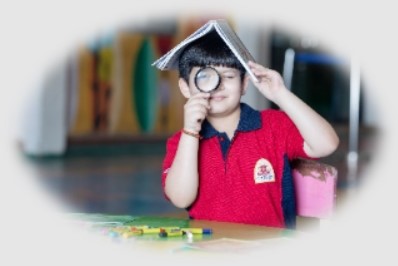
Primary Education Meaning: Primary education is the first stage of formal education, which comes after preschool or kindergarten and comes before Secondary education( taught in secondary school). The growth of children is significantly impacted by this activity, which is carried out in primary or elementary schools. There are still problems in primary education despite the fact that it is very important. These problems include the quality of instruction and the infrastructure, which highlights the necessity of making ongoing adjustments in order to guarantee an allround learning results, which we will discuss about it below.
Key features of primary Schools in India
Safe and Positive Growth Environment provides a safe and caring place for students to learn and grow through active participation.
- A balanced curriculum for both cognitive and emotional skills combines reading, math, life skills, and mental growth to promote development as a whole.

- Learning methods that are interactive and interesting.
- Audio, visual, and kinesthetic (AVK). The use of AVK methods helps students to remember what they've learned.
- By learning basic language, math, science, and social studies skills, students are ready to keep learning throughout their lives. Our primary school curriculum is meant to help on this path of growth and development.
Current Scenario
As per the report of ASER-2018, Better access to education has led to 96.5% of rural kids ages 6 to 14 being registered in schools, making sure that everyone can learn and grow. [1]
Government Schools
- About 70% of all primary schools in India are run by the government. These schools offer education for a small fee and feed millions of kids lunch every day. In spite of their problems, these schools are very important to the foundation of education in India.
- Government schools(aka primary schools) have long been India's education backbone, but limited resources and declining quality have made them less appealing over the past 2-3 decades. Understanding India's primary education history helps explain its evolution and current challenges.
- it has reached a massive number of children but suffers from infrastructure and lack of teachers and dropouts.
- The teaching Methodology is often Poor because of the High student-to-teacher ratio.
Private Schools
- Private schools cater to 29% of all children aged 6–14, providing better infrastructure and pupil-teacher ratios
- Feature mostly English-medium instruction, sophisticated teaching techniques, and extracurricular activities.
- Parents like them because they tend to provide an all-round education and prepare the child better for competitive challenges.
- Parents increasingly prefer private schools for their ability to deliver all-round development and prepare children for future challenges. Reflecting these ideas, our school combines classes and extracurricular activities in such a way that helps each student grow and pushes them to do their best.
Primary Schooling System in India- Why needed
Primary Education in India, also known as Elementary Education, lasts 8 years and is divided into two phases: The Primary stage and the Upper Primary stage.
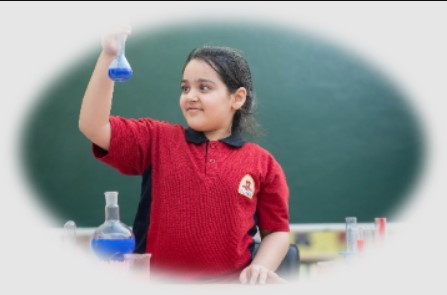 Lower Primary Stage(Classes I–V):
Lower Primary Stage(Classes I–V):
- During this stage, children aged 6 to 10 are taught basic skills like reading, writing, mathematics, and science.
- Core subjects include language, mathematics, and environmental studies.
- Taught through interactive methods like activity-based learning.
- According to the ASER report 2019, 96.5% of children aged 6–14 are enrolled in schools, but only 50% of Class V students in rural areas can read a Class II-level text.[2]
Upper Primary Stage(Classes VI-VII):
- During this stage, children aged 11 to 14 are educated to develop critical thinking, subject-specific knowledge, and readiness for secondary education and gather a new learning experience.
- Provides the foundation for advanced learning by inculcating critical thinking and analytical skills.
- Focus on subjects like science, social studies, and mathematics and develop skills from reading, writing, and arithmetic.
- The Gross Enrolment Ratio for upper primary as of 2019-20 stood at 91.4%. [3]
Objective of the Structure:
- The main plan of this structure is to learn the basics of how to read, write and do analytical problems.
- The 2019 ASER report mentions that approximately 29% of students in rural schools can't do basic maths problems.
- Another objective is to encourage creative and flexible thinking through the usage of activity-based learning and active teaching. This will help students remember and understand fundamentals better.
Understanding Education's Focus—NEP 2020 Summary:
There were various suggestions of the National Education Policy (NEP) of 2020, Currently some of the top schools in India are following the measures, which primarily are:
- A comprehensive way of Learning: At the beginning of the primary phase, academics, extracurricular activities, and vocational training are given equal weightage, which ensures all-round development.
- Innovative way of Learning: A huge focus is given to critical thinking, logical reasoning, and application-based learning to nurture problem-solving skills and creativity.
- Technology in Education: A strong digital framework is required to make education more interesting and easier to grasp.
Empowering Minds with Technology
Technology-based learning works best when there is a strong digital infrastructure that makes it easy to use modern teaching tools.
- Expert Faculty and Diverse Subjects: Highly qualified teachers and coaches guide students through a varied combination of subjects, all given equal significance for a balanced education.
Child Development through Primary Education
Primary education is pivotal for holistic child development, shaping intellectual, social, and emotional growth.
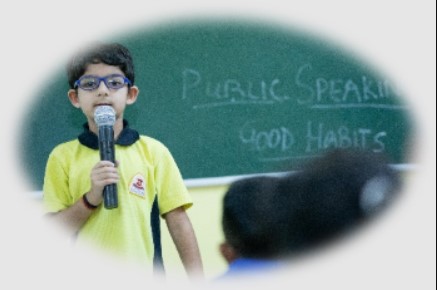
- Cognitive Growth: Encourages logical reasoning, analytical skills, and subject-specific knowledge, laying the groundwork for higher education.
- Social Skills: Teaches teamwork, communication, and peer interaction to help students succeed in society. Our public speaking program builds confidence and communication skills for socializing.
- Emotional Development: Fosters sympathetic feelings, toughness, and self-esteem, hence contributing to a responsible citizenry.
Challenges in Elementary Education
Quality of Learning
- Although enrolment has increased, in ASER 2019, only 50% of the fifth-grade students could read a level 2 text.
- Many schools believe in rote learning, thus affecting understanding and thinking.
Professional Support
- Only 43% of government school teachers have in-service training, while just 2% of private unaided teachers receive such training. This significant gap directly impacts the quality of teaching in classrooms. Our professional support system addresses this need, offering resources and training to enhance teaching effectiveness.
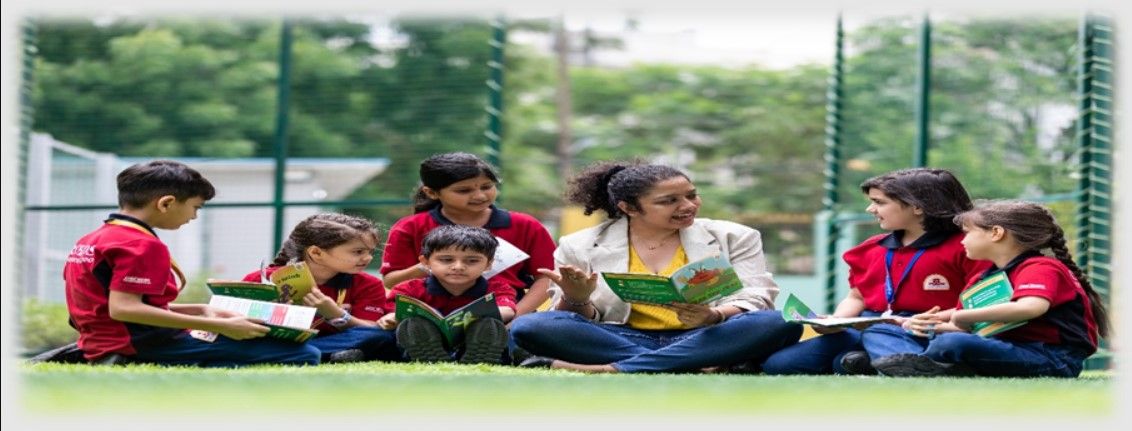
Professional Help: "Every Step of the Way to Success"
Infrastructure Deficit
- Many schools lack essentials like clean drinking water, functional toilets, and playgrounds.
- Only 61.9% of schools have separate toilets for girls, which significantly impacts attendance and retention, especially for adolescent girls.
Literacy Through the Years: A Story for Students
|
Year |
Boy Literacy (%) |
Girl Literacy (%) |
Combined Literacy (%) |
|
1872 |
- |
- |
~3.25 |
|
1881 |
8.1 |
0.35 |
4.32 |
|
1891 |
8.44 |
0.42 |
4.62 |
|
1901 |
9.8 |
0.6 |
5.4 |
|
1911 |
10.6 |
1 |
5.9 |
|
1921 |
12.2 |
1.8 |
7.2 |
|
1931 |
15.6 |
2.9 |
9.5 |
|
1941 |
24.9 |
7.3 |
16.1 |
|
1951 |
27.16 |
8.86 |
18.33 |
|
1961 |
40.4 |
15.35 |
28.3 |
|
1971 |
45.96 |
21.97 |
34.45 |
|
1981 |
56.38 |
29.76 |
43.57 |
|
1991 |
64.13 |
39.29 |
52.21 |
|
2001 |
75.26 |
53.67 |
64.83 |
|
2011 |
82.14 |
65.46 |
74.04 |
Graph: Literacy rate from 1872 to 2011
Schemes for school education in India
There are lot initiatives that are taken by Indian government to improve education standards, the important ones are:
Sarva Shikhsa Abhiyan
This scheme was introduced with the aim of making elementary schools available to all by tackling issues like school buildings, teacher training and School dropouts.
Midday Meal Scheme
The midday meal scheme was introduced to helps fight childhood obesity and gets more kids to school by giving them healthy meals.
Technological Advances
Some online learning platforms, like ePathshala and Diksha, have tools that make learning easier to get to and more fun. During problems like the COVID-19 pandemic, these tools have been very helpful. Our technologically advanced study system builds on these new ideas to give students seamless and interesting ways to learn.
Parents Corner
How to Choose the Best Primary School for Your Child
When selecting a primary school, consider factors that align with your child’s learning style and overall growth. Below is a guide tailored to help parents choose the best school for primary education:
Academic Approach
 Activity-Based Learning
Activity-Based Learning
Choose schools that implement innovative teaching strategies catering to various learning styles:
- Visual: Use of charts, videos, and smartboards.
- Auditory: Storytelling, discussions, and interactive audio tools.
- Kinaesthetic: Hands-on activities, experiments, and outdoor learning.
Holistic Development
- Look for a curriculum integrating academics with extracurricular activities like arts, sports, and social engagements. This ensures a balance between intellectual and personal growth.
Infrastructure
- Classrooms and Facilities: Modern classes with enough lighting, air flow and seats make for a good place to learn.The introduction of smart classroom will improve the experience of learning more.
- Safety Measures: Schools must have emergency response plans, trained security personnel, and clean facilities (hygienic toilets and sanitized cafeterias).
Qualified Teachers
- Credentials and Training: Ensure teachers hold professional qualifications and undergo periodic training to use innovative teaching methodologies.
- Special Programs: Schools offering remedial classes for weaker students or advanced programs for gifted children show a commitment to diverse learning needs.
Parental Involvement
- Communication Channels: Transparent communication is key.Therefore it is quite important to note that a school which provide children with updates (study, life etc.) on a regular are the ones to be considered.
- Parent-Teacher Meeting(PTM): The parent-teacher meeting plays an important role in school selection, as it generally is a strategy session where the child's all-round development is taken as a goal and how teachers and parents both can contribute to achieving that goal.
Thoughts from parents: "Voices that inspire us"
We prioritize open communication and collaboration, so parents trust us. Regular updates and active parent-teacher meeting create a supportive environment for your child's development.
Thoughts from parents: "Voices that inspire us"
Location and Transportation
- Commute Convenience: Schools closer to home or offering reliable transport services save time and reduce fatigue for young learners.
- Proximity and Safety: Evaluate the school’s surroundings for safety and accessibility.
Comparison of Different School Boards for Primary Education
Different boards provide education in India, and choosing the right one is quite important.
|
Board |
Focus Areas |
Key Features |
Ideal For |
Stars |
|
CBSE |
National curriculum with standardization |
Concept clarity, preparation for exams |
Families seeking structured, all-India options |
🌟🌟🌟🌟 |
|
ICSE |
In-depth, subject-specific learning |
Focus on arts, languages, and creativity |
Students excelling in detailed academics |
🌟🌟🌟🌟 |
|
IB |
Global, inquiry-based learning |
Encourages research and critical thinking |
Families planning international education |
🌟🌟🌟🌟🌟 |
|
State Boards |
Regional focus and affordability |
Aligns with local culture and language |
Families seeking regional and affordable schooling |
🌟🌟🌟 |
Key Takeaways for Parents
- Match Learning Styles: Choose a school where the teaching method aligns with your child’s strengths and interests.
- Focus on Safety and Hygiene: Ensure infrastructure and cleanliness standards meet your expectations.
- Involvement in Learning: Opt for schools that engage parents as active participants in their child’s education.
FAQs on Primary Education in India
1. What is a primary school short answer?
Elementary school, Junior school, and Grade school are some of the names for primary school. Kids between the ages of 6 and 11 are present in this phase. Kids have to finish this schooling before they can go to middle school or high school. Primary education includes learning basic skills like reading, writing, and learning new things. [4]
2. How to choose the best primary school for my child?
Schools should be judged on how well they use activity-based learning, have good infrastructure, have qualified teachers, and let parents be involved. Choose one that puts an emphasis on academic excellence and encourages development across the board through extracurricular activities, values-based education, and a safe place for your child to learn and grow. [5]
3. What are the common challenges in primary education in India?
Parents and kids have to deal with problems like bad infrastructure that makes it harder to learn, teachers who don't show up to class often, and too much rote learning that stops kids from being creative and thinking critically. These problems often make primary education less good and less useful overall.[6]
4. How has technology impacted primary education?
Digital platforms like Diksha and Epathshala have changed the way people learn by making resources interactive and easy to find. During the COVID-19 pandemic, these platforms were especially helpful because they kept learning going with digital textbooks, video lessons, and practice modules. They filled in the gaps in traditional classroom instruction and allowed students to learn at their own pace and in different ways.
Last Tip
Kids learn things like how to read, write, and answer problems in primary school, which will help them learn for the rest of their lives in basic school. After a lot of work, India has made it possible for more kids to stay in school and go to school. However, the country still needs to improve quality, teacher training, and resources. Kids can have a great, happy and successful life if sent to the right shool.Parents are crucial to this process, since their involvement in children's development is quiet imprtant and should be stressed.
Related Articles
- Primary Education in Orchids International School
- Public Speaking - the new way of social skill development
- Cultivate Analytical & Innovative Mindsets- The Orchids Way
- Importance of Girl Child Education in India
Ready to explore how Orchids International School can ignite your child’s passion for co-curricular activities?
🌟 Explore Our Academic Programs: "Let's Explore"
🌟 Contact Us: Grab the Experience
Frequently Asked Questions
Elementary school, Junior school, and Grade school are some of the names for primary school. Kids between the ages of 6 and 11 are present in this phase. Kids have to finish this schooling before they can go to middle school or high school. Primary education includes learning basic skills like reading, writing, and learning new things.
Schools should be judged on how well they use activity-based learning, have good infrastructure, have qualified teachers, and let parents be involved. Choose one that puts an emphasis on academic excellence and encourages development across the board through extracurricular activities, values-based education, and a safe place for your child to learn and grow.
Parents and kids have to deal with problems like bad infrastructure that makes it harder to learn, teachers who don't show up to class often, and too much rote learning that stops kids from being creative and thinking critically. These problems often make primary education less good and less useful overall
Digital platforms like Diksha and Epathshala have changed the way people learn by making resources interactive and easy to find. During the COVID-19 pandemic, these platforms were especially helpful because they kept learning going with digital textbooks, video lessons, and practice modules. They filled in the gaps in traditional classroom instruction and allowed students to learn at their own pace and in different ways.
CBSE Schools In Popular Cities
- CBSE Schools in Bangalore
- CBSE Schools in Mumbai
- CBSE Schools in Pune
- CBSE Schools in Hyderabad
- CBSE Schools in Chennai
- CBSE Schools in Gurgaon
- CBSE Schools in Kolkata
- CBSE Schools in Indore
- CBSE Schools in Sonipat
- CBSE Schools in Delhi
- CBSE Schools in Rohtak
- CBSE Schools in Bhopal
- CBSE Schools in Aurangabad
- CBSE Schools in Jabalpur
- CBSE Schools in Jaipur
- CBSE Schools in Jodhpur
- CBSE Schools in Nagpur
- CBSE Schools in Ahmednagar
- CBSE School In Tumkur

Call Us to know more about Orchids
Swipe Up



.jpg&w=1920&q=80)












